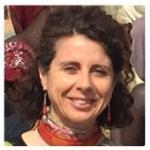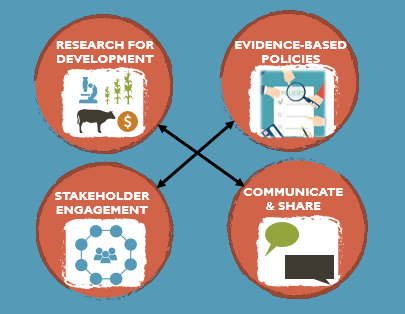Enabling Environment Course: Engaging Stakeholders
This free online course encourages researchers to interact positively with their stakeholders over the lifetime of their projects. Organized into five short modules, How to Keep Stakeholders Engaged in Your Research Project features both English and French presentations and lectures from University of Florida's Dr. Renata Serra, the leader of our Enabling Environment cross-cutting theme; and research assistant Pierre William Blanc, from the Center for African Studies.
Instructions on how to enroll are here:
The two-hour course is supported by Florida’s extension service, provided by the university’s Institute of Food and Agricultural Sciences (IFAS). Participants can earn a certificate of completion. If you have any questions about the course, please contact Dr. Renata Serra at rserra@ufl.edu or Pierre William Blanc at pwilliam.blanc@ufl.edu.
VIDEOS
To access only the course's videos, choose a language for a playlist on 
A sub-section of videos is available on this page dedicated to Bridging Research and Policy through Engagement and Communication.
About Dr. Serra
 Speaker: Renata Serra, Ph.D., is Senior Lecturer at the Center for African Studies and Policy and Gender Expert for the USAID Feed the Future Innovation Lab at UF. She is affiliated with the UF Center for Women's Studies and Gender Research and is graduate advisor for the UF Master in Sustainable Development Program. She has a PhD in Economics (Cambridge, UK) and more than twenty experience of research and consultancy on issues of African development, particularly in West Africa.
Speaker: Renata Serra, Ph.D., is Senior Lecturer at the Center for African Studies and Policy and Gender Expert for the USAID Feed the Future Innovation Lab at UF. She is affiliated with the UF Center for Women's Studies and Gender Research and is graduate advisor for the UF Master in Sustainable Development Program. She has a PhD in Economics (Cambridge, UK) and more than twenty experience of research and consultancy on issues of African development, particularly in West Africa.
Feed the Future Innovation Lab for Livestock Systems is part of Feed the Future





